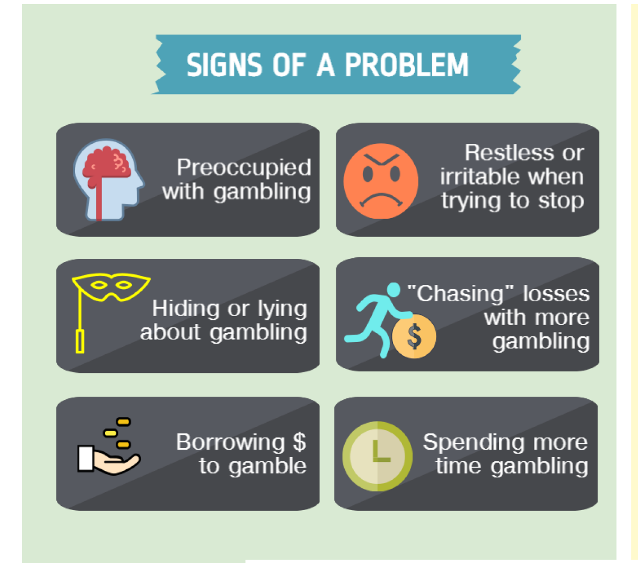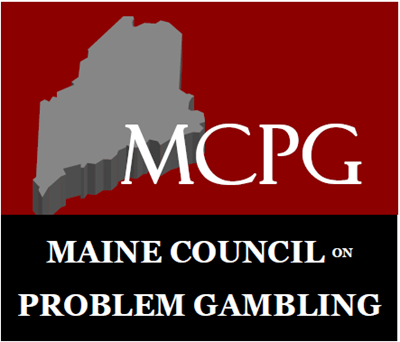Problem Gambling
What is Problem Gambling?
Gambling is any activity where a person risks an item of value, such as money or property, on the outcome of an event which is determined mostly by chance.
Gambling becomes a problem when it gets in the way of work, school or other activities, harms your mental or physical health, hurts you financially, damages your reputation, or causes problems with your family or friends.
Not all people who gamble excessively are alike, nor are the problems they face. People with gambling problems are found in all age groups, income groups, cultures and jobs. Some people develop gambling problems suddenly, others over many years. There are many reasons why a gambling problem may develop. For example, some people develop problems when they try to win back money they have lost, or because they like to be “in the action.” Others have many life stresses that make gambling a welcome relief. Problem gambling is not just about losing money. Gambling problems can affect a person’s whole life.
How to Spot the Signs
Would you know a gambling problem if you saw it in a friend, loved one, coworker, patient or student? It’s important to know the signs because 3 percent of the population may have a problem, which puts them and their families at financial and emotional risk.
Here are some warning signs:
- Preoccupied with gambling and unable to stop
- Bragging about gambling, exaggerating wins and minimizing losses
- Restless and irritable when not gambling
- Gambling to win back what you’ve lost
- Borrowing money for gambling
- Lying to hide time spent gambling or unpaid debts
- Frequent unexplained absences
- Losing work time because of gambling
- Doing something illegal to get money for gambling
- Jeopardizing a significant relationship or job by gambling

Keep it in Perspective
Problem gambling is not a bad habit or a moral weakness. It is a serious condition, but with treatment, problem gamblers can put the game in perspective and make decisions to improve their lives.
Help is available:
Click here for a list of resources to help. Choose the best option for YOU…hotline, chat, text, in-person meeting, peer support, Maine 211 to connect you to a local treatement professional, and more.
